
Youth Connections - Learning what it takes to support rangatahi
2023
This report provides evidence-based insights for government, philanthropy, policy and decision makers on how to support rangatahi into quality jobs. It is informed from TSI and TWI’s Youth Connections work during 2019-2023 which saw $2.5m distributed to support Māori and Pasifika rangatahi in south and west Auckland.
It is clear that a holistic approach is required to help rangatahi navigate the transition to adolescence and to work. In a world in which the future of work is dramatically changing, against a backdrop of climate change and deepening inequality. The report spotlights stories of impact and poses a series of questions for future funding in youth transitions and employment.

Local Government Impact Report – Creating Thriving Communities
2023
What role can local government play in making our food systems more sustainable and accessible?
This report outlines different examples throughout the country including The Southern Initiative’s work in south Auckland.

Co-Designing Poutokomanawa – A Warm and Welcoming Place for Whānau at Manurewa Plunket Family Centre
2023
The Southern Initiative partnered with the Manurewa Plunket Family Centre on the renovation of the centre building.
Using the renovation as the focal point, this report describes how we led Plunket staff and a group of local whānau through a co-design process to shift the Plunket team from a service-led approach, in which staff decide what is delivered and how, to one driven by whānau needs and wishes.

Pasifika-centred adult learning to grow intergenerational wealth: Uptempo insights and system implications
2022
Pasifika wealth is significantly lower than for any other ethnic group. How might we grow intergenerational wealth and wellbeing? And for the many who are stuck in low-paid jobs, what will it take to transition Pasifika workers, quickly, into higher paid roles in sunrise industries?
In this report we describe what we’ve learned about the importance of adult learning in these transitions for ‘aiga.

Increasing Pasifika ‘aiga readiness for workforce progression: Uptempo insights and system implications
2022
Pasifika peoples are disproportionately over-represented in low paid and sunset industries. What does it take to transition Pasifika workers to higher paid, sunrise industries?
Read about how our learning can be scaled through policy, commissioning, mental models, and existing programme delivery.

Te Taiwhanga Rangatahi – An equity-led youth design lab
2022
Tāmaki Makaurau spent twice as long in hard lockdown due to Covid-19 than anywhere else in the country. With significant disruption to young people’s schooling, many didn’t return, leaving school to work as families experienced tough economic times. From our previous research on Youth in the South, we knew that completing Year 13 is a significant protective factor for young south Aucklanders. We also had valuable insights and connections from our Youth Economy work.
This is the story of our collaboration with Manurewa High School to test a flexible learning experience in response to these complexities. The prototype then matured into the design lab, Te Taiwhanga Rangatahi, focused on understanding rangatahi through rangatahi themselves.

Activating an Ecology of Support – A futures visualisation project to inform integrated community-led responses to family violence and sexual violence
2022
Aotearoa/New Zealand continues to have some of the highest rates of family harm in the OECD. As well as being violations of human and women’s rights, this harm undermines our efforts in cultural, economic and social wellbeing and in realising Te Tiriti o Waitangi. Integrated community-led responses will require a significant shift from the current system which is largely reliant on formal service-based approaches and prescribed tauiwi and government-led interventions.
This report on visualising the shift to a different response was a collaboration with Te Puna Aonui (formerly the Joint Venture on Family Violence and Sexual Violence) with the generous support of whānau, community and government partners.

Unleashing the Potential of Whānau Centred and Community Led Ways of Working
2022
is continuing to produce inequitable outcomes particularly for Māori and Pasifika and isn't necessarily working well for ‘all New Zealanders’ either.
This report was commissioned by the Department of Prime Minister and Cabinet as an input into the Review of the Child and Youth Wellbeing Strategy. It describes why we need the shift to locally led responses that are centrally enabled and how it can happen.

Unlocking the potential of local government: Activating a wellbeing ecology, in place
2022
This report draws together insights from ongoing innovation work within local government and describes the untapped potential of local government as an activator and champion of wellbeing. The full potential of local government is only unlocked, however, when it operates beyond a transactional use of existing levers focused on short term savings, and towards valuing multiple and longer-term wellbeing outcomes.
This report was commissioned by the Review into the Future for Local Government to support their draft interim report He mata whāriki, he matawhānui.
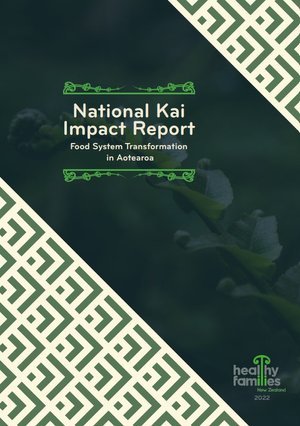
National Kai Impact Report – Food System Transformation in Aotearoa
2022
How can we make our food systems more sustainable and accessible?
Find out more about our Healthy Families work, the difference these initiatives have made and what we learned along the way.

'What about the Menz?'
2021
This big data story about dads in south Auckland is a collaboration between The Southern Initiative and the Social Wellbeing Agency. How having a baby affects dads was one of the key findings of an earlier report Towards better social sector decision-making and practice – A social wellbeing approach.
In this big data report, we look at how income, occupation, length of time in a job and leave eligibility results in one in every four Māori and Pasifika dads are missing out on partner parental leave.
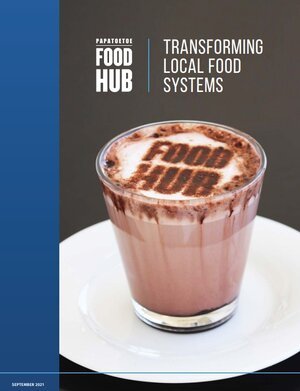
Papatoetoe Food Hub – Transforming Local Food Systems
2021
Since emerging as an idea in 2017, the Papatoetoe Food Hub in south Auckland has been growing a community-based approach to providing good and affordable food.
In this report we describe the journey and our learnings.
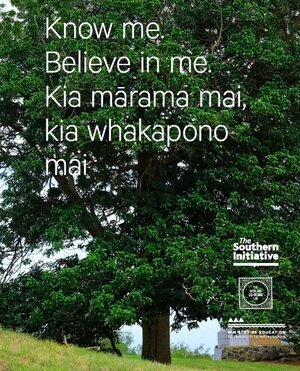
Know me, Believe in me / Kia mārama mai, kia whakapono mai
2020
A precursor to Te Taiwhanga Rangatahi youth lab, this collaboration between the Ministry of Education, The Southern Initiative, Co-design Lab and Middlemore Foundation provides insights gained from lived experiences and observations of the education system. We sought rangatahi, whānau and school perspectives on supporting attendance, engagement and wellbeing.
Read more about what we discovered with Manurewa students, including from Manurewa High School, and how we might scale innovations within the education system to improve rangatahi experiences in secondary schools.
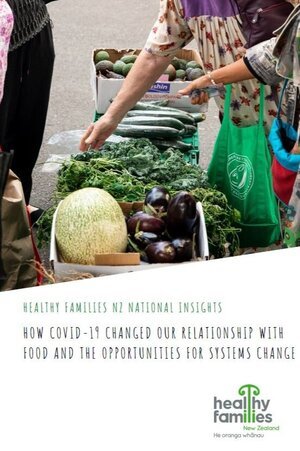
Healthy Families National Insights Report – How Covid-19 changed our relationship with food and the opportunities for systems change
2020
This national report across Healthy Families sites provides five key insights on the impact of the first Covid-19 lockdown on food systems. Read here about what happened in south Auckland.

Towards better social sector decision-making and practice – A social wellbeing approach
2020
The first 1,000 days of a baby’s life plays a significant role in the trajectory for their future. Using longitudinal data from the Having a Baby in South Auckland project, The Southern Initiative and the Social Wellbeing Agency brought together this significant data with real-life experiences.
This report paints a vivid picture about the stresses whānau experience on and around the birth of a child.
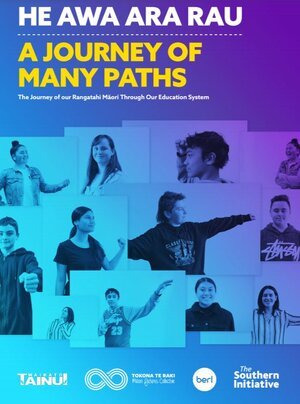
He Awa Ara Rau – A journey of many paths
2019
This report is a big data collaboration between Waikato-Tainui, The Southern Initiative, Tokona te Raki: Māori Futures Collective of Te Rūnanga o Ngāi Tahu and BERL. We look at how rangatahi experience pathways from the education system to the labour market across three different geographical areas of Aotearoa.
Read more about how we can do better for rangatahi and why we need to act with urgency.

Learning in complex settings: A case study of enabling innovation in the public sector
2019
Affordable, secure, warm, safe and dry housing is a prime example of a “complex” or “wicked” problem – there is no single cause or solution, there is often contradiction and certainly multiple perspectives and competing interests.
Using our Healthy Homes 2016 and 2018 co-design work as an example, we look at the insights from how it was delivered and how the public sector might better engage with complex challenges in an increasingly multi-crisis environment.
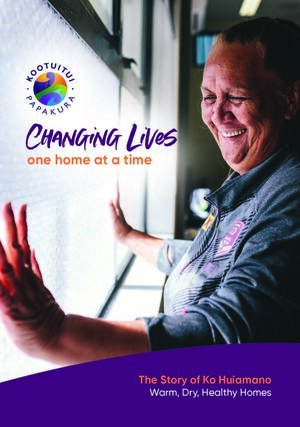
Changing lives one home at a time
2019
The default position to tackling pressing issues in south Auckland is to pile in with more services. But what ‘hard to reach’ women told us is that they don’t want social services; they want mana motuhake, mutual aid, solidarity and pro-social relationships with others in their communities. Bringing together the expertise and contacts of our earlier Healthy Homes and Early Years work, we partnered with wāhine and Papakura Kootuitui Trust to co-design Ko Huiamano.
This is the story of Ko Huiamano’s peer-to-peer venture and break-through innovation where women achieved their aims through creating warmer, dryer and healthy homes for whānau in their community in affordable ways.
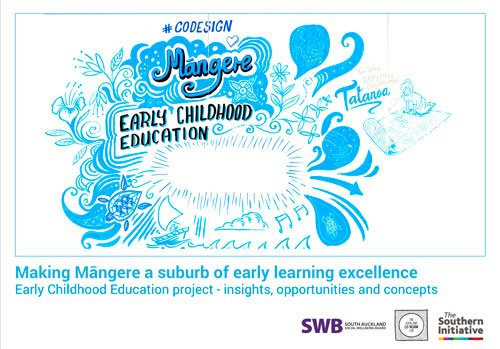
Making Māngere a suburb of early learning excellence
2018
Quality early childhood education helps to buffer disadvantages experienced by children, particularly those from low-income, vulnerable families. In collaboration with the South Auckland Social Wellbeing Board, we worked with parents and early childhood education providers to understand what excellence looks like for parents in Māngere and how we can get there. Read about our journey here.

Healthy Homes Initiative – Auckland
2018
The Ministry of Health asked The Southern Initiative and Co-design Lab teams to help develop practical solutions for families who were part of the Auckland Wide Healthy Homes Initiative (AWHI).
In this follow up to the 2016 report, we document the process of testing co-designed ideas and solutions for warmer, drier and safer homes.

Early Years Challenge – supporting parents to give tamariki a great start in life
2017
In collaboration with ‘hard to reach’ mums and a range of central government and NGO partners, we learnt what we and others can do to create positive transformations in young lives. This report outlines the systems change needed to make those transformational shifts in south Auckland and was the genesis of our Tamariki Wellbeing programme.

The Attitude Gap Challenge
2016
Why does there appear to be a disconnect between young people looking for work and employers looking for workers?
In one of the first co-design sprints of the Co-design Lab and The Southern Initiative, this multi-agency skills and employment challenge explored the importance of work ready youth and youth ready employers throughout the employment journey. This body of work then went on to influence The Southern Initiative’s Youth Economy programme.

Healthy Homes Initiative – Auckland. Co-design: making Auckland homes warmer and drier
2016
The Ministry of Health asked The Southern Initiative and Co-design Lab teams to help develop practical solutions for families who were part of the Auckland Wide Healthy Homes Initiative (AWHI).
This is the first of two reports where we document the process of getting AWHI back on its feet before successfully transferring the renewed programme to community groups and NGOs. Also see our follow-up 2018 report.

Exploring Security of Tenure Through Co-Design
2015
‘Housing’ is not just about homes for people; for decades it has been seen as an investment strategy. With Auckland firmly in the grip of a housing crisis, what does this mean for people affected by this economic model?
This report describes what we learnt about tenancy issues through a design led approach. It also bears a strong relationship to our later work on Healthy Homes in 2016 and 2018.
























